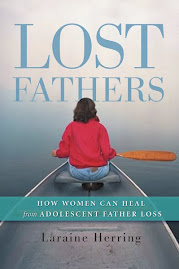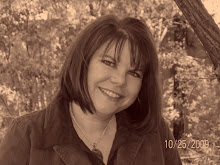San Francisco's ghosts are as vibrant as the rainbow flags that fly from the tops of buildings on Market Street. Its ghosts cling to the basement of the Hotel St. Francis during the fire after the 1906 quake. They holed up in the wine cellar with a tiny dog, waiting for the rocking and the burning to be over.
The city absorbs everything and everyone. The ruins of the Central Freeway (US Route 101) that collapsed after the 89 Loma Prieta quake have become a green backdrop for the laundry mats and hair salons of the newly gentrified Hayes Valley. The city remembers its opium dens and its slave trade in immigrant labor. The city remembers Mark Twain and has yet to forgive him for his "the coldest winter I ever spent was a summer in San Francisco" comment. The city remembers the Beats. North Beach, which isn't what it was, still holds the sound of the pale, white alcoholics who tried to change the world -- or at least their perception of the world.
I walked through the Tenderloin last week with my friend, Dex, and my partner Keith. My current novel’s protagonist, Helen, lives there, and I wanted to get a visceral feel for the neighborhood. Helen is an alcoholic. Her baby, Ellie, drowned at her breast in 1969. Her daughter, Claire, has just packed up and moved to god-knows-where, she thinks somewhere in Oregon, and her husband, Frank, hasn't come home from work yet. He hasn't been late coming home in forty years. She rarely leaves her apartment, which she and Frank have lived in since the late 60's. Their marriage has become what many marriages become - a familiarity to be borne with a Catholic severity. She didn't know she relied on his presence until he didn't show up. This night, tonight, June 19, she is venturing out of her apartment. Forty years from the day she and Frank first landed in San Francisco and found themselves in the Haight at a Love-In, waiting for the wailing of Janis Joplin. She is stepping out, presumably to look for Frank, but even she knows that's only a story she's feeding herself. She is stepping out to find her city again -- the city that stole her heart -- first in the good way, then in the not-so-good way. The city that broke her on its jagged sidewalks and crooked streets. The city that summons her with the monotonous voice of the Muni announcer ... Approaching, outbound, four cars, J, J, in three minutes. The city that tricks her into believing she matters -- into believing that she has somewhere to go and someplace to be, simply because there are so many options for getting places. Who's to know that if she gets on a train she only rides from one end to the other, gets off, and waits for the train to turn around so she can reboard. She can ride all day like that in the underground. As long as she didn't come up the stairs into the light, she could ride forever. She thinks of a snippet of a song her father sang to her once -- something about someone riding forever through the streets of Boston -- but she can't quite remember the entire song. Something about the MTA.
My friend Dex is tall -- really tall -- which is great when you're walking through the Tenderloin at twilight and you're only 5'2". It's even greater when the twilight begins to deepen into dusk. Dex talks to us about the mayor's policy on homelessness. A motel painted in baby blue is blockaded with a black gate. There's a sign for a public hearing -- property to be changed from a tourist motel to a residence inn. A legless man in a wheelchair has the shakes across the street from us. New banners adorn the streetlights: Welcome to Little Saigon. The banners are professional and pastel and don't portray the street we're walking through. The street we're walking down has an occasional open Vietnamese restaurant, a barricaded half-way house.
"Got a light?" asked the skinny man in front of the building.
"You know I don't smoke," said a fat woman, walking into the building. "I tell you that every night."
I try to look without looking. Across the street is a perilously skinny woman, her limbs all angles and tattoos. She's pressed into the shoulder of a Latino man, larger, tattooed, and laughing. He pulls her across the street. She's wearing black hose that are ripped from knee to crotch. Her skirt is small enough to be a napkin. They touch, this man and this woman; they touch.
People group in fours and fives, rolling dice, pulling out cigarette after cigarette, puffing a few times, before crushing them out on the sidewalk. Hands slip into pockets and into the hands of men who appear and disappear faster than ghosts. The drugs move around us, a river we can choose to step into or step around. All of us feel the pull of the tide. I think of a warning sign at the Pacific Ocean in Oregon for "sneaker waves". Apparently these waves could emerge, fully formed, at the shore and crash over you, sweeping you out into riptides.
That's what the Tenderloin felt like. We (and I speak really for only myself here) were walking right along the edge of danger, armed with the illusion that we were immune to its siren call because we were employed and white, and separate somehow, from the reality that would give you a blow job for fifty cents. How many stars had to line up for the three of us to be able to walk through the neighborhood without being pulled into it? How many turns had to be taken correctly to be able to walk through it to the other side to our four-star hotel, (we got it for a steal on Travelocity, but it was still a four-star hotel), or to my friend's apartment in the Castro?
We're looking for Glide -- the famous Methodist Church. I'm thinking Helen might end up there. We walk too far in one direction, the literal truth that the higher we walked up the hill, the safer the neighborhood became. I wanted to see Glide, so we turned around and walked under bright green protected scaffolding down Eddy Street. The Tenderloin Police Station was on our right, the neighborhood patrolled by a young white cop, only a few inches taller than me. A woman is eating a sausage between two pieces of white bread. She's laughing and speaking to someone inside the building. It's Glide. The man has a bright yellow GLIDE STAFF jacket on. I peek as nonchalantly as I can into the room. It's decorated with pastel paintings and the one day at a time speech of recovery. The staff member is smiling and whistling. A lit cross is on top of the building. I imagine it can be seen for blocks. A man even taller than Dex approaches us. He is a cross between Jack Skellington and Edward Scissorhands.
"I'll stand on my head for thirty cents!" he declares.
Dex says softly, "Not today." We've been deferring all communication to Dex on this sojourn.
Jack Skelington looks shocked. "Shit!" he says, and mutters on down the street.
I walk between Dex and Keith, thinking what a raw deal it is for men to walk on the dangerous sides of things to protect me. I don't feel bad enough to trade places though; my feminist heart knows when she's out of her league. She also knows that if she'd taken this walk alone, there'd have been far more approaches by many more people, asking for more than thirty cents.
Does Helen know how close she is to Union Square? Does she know how close she is to the banking centers of the west coast? Does she only see 1967? Only see the Haight as it was with the Diggers and the electric light shows and the lost children looking for themselves in tie dye and glitter? Has she walked down the Haight since Ellie died?
San Francisco contains millions of worlds. Perhaps only small few are happening today. Many are happening decades ago, or continents ago; many are happening with long-gone relationships, long-dead friends. The Tenderloin is heavy. It isn't all cliched suffering and addiction. It's families trying to survive in one of the world's most expensive cities. It's first generation immigrants trying to make a better life for their kids. It's merchants and shopkeepers who don't, at least right now, have to compete with Target and Walmart and China Buffet to make a living. It's the glory of salvation in the cross and it's the glory of salvation in the needle and the pipe. It's the desperate, grabbing, love-me-now energy, which translates into see-me-now, see me please eyes and arms and feet.
I want to look everyone in the eye, but I admit to being afraid to be that vulnerable -- to give them an opening. Many of them are mentally ill. Many are our veterans. Team America. Fuck yeah.
The Tenderloin screams of what it could have been. Its streets hold the suffering of generations of men and women. You can hear the hunger, and it is far more than a physical hunger. The city's ghosts hang with the laundry that stretches across balconies. The slow suicides and the fast ones. The men whose shame fills the places in their bodies where love used to live. The breath of the Tenderloin is shallow and staccato. It chokes on its inhale and refuses to release all of its exhale.
It's getting darker. Shadows move in the park. Where would Helen go out here? Would she see herself reflected in the face of the homeless man who demanded a dime? Do I see myself in that man? I do. I have been privileged. I'm not hungry or homeless. I'm not addicted to drugs or alcohol. I'm employed. I'm educated. But when I walk down these streets (and yes, when you can walk through and out, you're not really in -- I know that) but when I walk down these streets I feel the two-steps away I am from being here. The fragility of our economy, of "America" and its hungry-ghost belly that is never, ever, ever satiated, the system I am a part of in educating people at a community college for low-wage jobs that I have never had to do. Yes, I do see myself in these streets. I see more than a passing "whew, thank god that's not me", and a more pressing "yes, yes, I am thou."
See me. See me please.
The too-skinny woman and the Latino man cross the street in front of us. They hold tight to each other. I stand between two men, all three of us passing through. All three of us, in our own way, saying "see me" in our fragment of the millions of worlds on the planet we circle in. All three of us appreciating the safety of an arm around our shoulders when the dusk becomes dark.
The lobby of our four-star hotel is just as hungry, just as frantic. Travelers pulling too many suitcases, searching for more to pack into them. People waiting for hours to eat at Michael Mina's for a minimum of $100 a plate. People drinking the acceptable drinks, from clean glasses with olives and tiny straws and $12.00 per drink prices. The acceptable addicts. The well-washed hungry ghosts. My shoes cost over $100. I'm wearing far more than that in jewelry. My Visa and I are welcome everywhere I want to be.
The doorman hopes we had a nice evening. The concierge hopes our stay has been pleasant. The manager of the hotel left us a voice mail welcoming us and telling us not to hesitate to ask if we need anything during our stay. The sheets are 400 thread count, white. The remote control isn't bolted to the nightstand. Neither is the flat screen plasma TV. The honor bar has $4.00 packs of peanut M&M's and baby cans of Pringles. Keith and I take off our $100 shoes and climb into the very white bed, two blocks from the Tenderloin. We touch each other in the darkness.
See me.
See me.
Subscribe to:
Post Comments (Atom)









2 comments:
I love reading stories thru the eyes of someone else about the places that have made an indentation on my heart
This brought back a lot of memories for me. It's a strange, strange place, and a perfect setting for any story.
Post a Comment